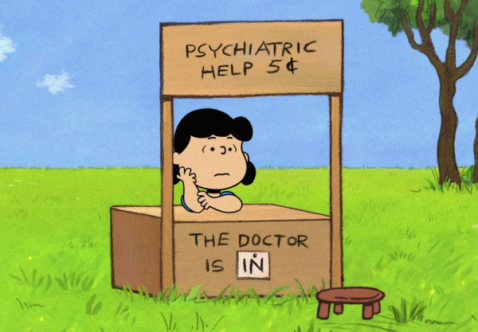A guide to self-help when you lose a parent
Let me start you off by stating, very clearly, that there’s no textbook way to grieve. There’s no one way to cope with grief and loss, simply because there is no one way to feel those emotions. It’s come up on exactly one year for me since I lost my father, a loss that one year later I don’t know that I’ve entirely processed. I’m not entirely sure anyone really entirely processes the loss of a parent. There are the things you had, the things you didn’t, those blanks in between that you wanted to see but were never filled, those ‘what ifs’ and more. Ruminating and dwelling on those things serves no one well, and that’s a lesson my mother has taken care to carefully remind me of in this past year as she deals with our shared loss in her own way.
But before I start, to my mother:
You will always have close familial relationships, and for me, my mother and I have always been closer than anyone in the entire rest of my family even though, in so many ways, my father and I were very similar. Our shared loss has brought my mother and I even closer, but it has inspired me to cope with loss in a way that I didn’t know how to before. If earlier I was inspired by my mother’s nature and commitment to things, now I am amazed by her strength in supporting me in every way possible. In her, I find both unconditional love and a trust that I may not even have felt for her entirely before. You will rediscover things about your own family, and they will bring you closer than ever.
Focus on the good

Like with every family, there are memories you wish to remember and some that you wish you did not. Anyone who says otherwise isn’t telling the whole truth – but they shouldn’t have to.
Someone who suffered a very similar loss told me soon after the loss that you “tend to focus on the good and only occasionally think about the bad.”
This is absolutely the case, and T, thank you for that one statement. It’s stuck in my head ever since.
Your closest friends are the ones who will be able to help most here. Their proximity to the situation – and yet their relative distance to the loss, will help you discuss both good and (more fleetingly) the bad, thereby clearing your head.
Keep them close. I made the early mistake of being guarded about my grief early on. Encourage yourself – and your closest will do this too – to speak about your loved one. The first step to grief is acknowledgement. Talk. Talk about the things that hurt you, talk about the things that made you happy. Talk about the experiences you shared and about photographs.
About holidays or about sunny days reading books at home. About childhood stories and songs you sang together or TV or anything you feel like. Let it all out, whether it’s in the form of tears or words or speech or absolutely anything that helps. It’ll help.
For me, I remembered the many fun holidays we took together – to the beach, across Europe, across south-East Asia, across the street from the hotel to the 7/11 to pick up beer and local snacks. Across.
Acknowledge your loss
A very irreligious person, I am nevertheless grateful – but still perhaps in part, traumatised, by the ritual of “sorting the bones.” But as I think about it, it comes across more as a way to impress upon you that you have in fact suffered a loss. It’s the ultimate truth of life, and it’s best not to run away from it early on, as soothing as it feels.
Initially, and with a loss of the magnitude as big as that of a parent, you sometimes tend to sort of pretend it didn’t happen. That isn’t to say that you don’t understand your loved one is no longer with you, but just bottle up your reaction to that loss temporarily. As hard as this might sound to those of you lucky enough not to have suffered this loss, you convince yourself, in a way, that your parent has gone on an extended vacation.
There’s no wrong or right about this. It’s a coping mechanism, and whatever works for one may not work for the other, or may work brilliantly. There’s no right or wrong way to feel about a loss, but trying to ease yourself into coming to terms with it, I’ve found, has helped immensely. Yes, shockwaves will come back to hit you in sudden bursts but they go away quicker.
Speak to your family – both immediate and extended. While you may want to avoid this for fear of hurting your family, or out of a desire to protect them from hurt (I made this mistake), you’ll find that they are the ones who share your loss the most. In my case, I had my mother, to whom I have always been very close, and my grandfather. All of us suffered the same loss in a different capacity. Speaking about your feelings gives them body, makes them real, and makes you understand and begin to process your loss. Initially, I avoided speaking about it for fear that it might open up wounds that my loved ones were trying to heal. In reality, us talking to each other helped us vent, heal and repair.
Don’t look for things to “fill the void”

Not my guitar – mine are safely ensconced in stands right next to me though!
Yes – look for activities to do to occupy your time and new hobbies or creative pursuits. However, don’t try and fill the hole the loss of your loved one has created with a person, or a habit. Let that wound heal on its own. The hole or void that the loss of a loved one leaves is certainly reparable – but not replaceable. But it’s also a way to understand that your loved one – and the loss thereof – will always remain with you. The void will be there – but it may be smaller. The wound will be there, but it will certainly hurt less.
What you should do is things you love. Let that person-sized hole heal, but it doesn’t need to fill, and you certainly don’t need to fill it with a thing, or a person, or anything. It can just heal. Think of this very morbid analogy – you don’t need to stuff a wound with gauze for it to heal.
For example, I’m getting back to an hour of guitar practice and singing a day. Exercise is helpful, even if it’s just a walk. A pastime. An instrument you want to pick up or re-pick up. It will give your mind something to occupy it, you learn a new skill or sharpen an old one. It… always helps.
Pressure will come and go and especially on occasions – it’s okay.

Deflate….gate? Sort of.
The pain of missing your loved one will get exponentially more severe around the holidays. it’s not just the holidays, either. Birthdays, anniversaries, special occasions will all become difficult and feel strange in a way that few other things do.
You don’t have to be strong and ‘man’ or ‘woman’ up as the case may be. There is no mandate requiring you to be stoic, pretend as though nothing has happened, or go about your day. If you need to feel it, feel it. My mother and I both did, and both of us did cry. Both of us also felt his memory by.. something simplistic – ordering his favourite Mexican food. Honour your loved one’s memory in whatever way YOU feel is appropriate.
It is not for anyone to tell you how to grieve – if you want to go to your place of worship, do that – and if you don’t, do that too. Visit places you went to together. It’s okay – and perfectly normal to feel like this on those days. I felt it on the first birthday I had without my dad this year. My mother felt it on hers. We felt it on the anniversary of his passing. And all of those things are normal – and helpful in their own way. Don’t pressure yourself to put on any sort of brave face for anybody. Don’t let anyone tell you “not to cry” or even force yourself to if you aren’t feeling like emoting at all.
Which brings me to….
Your grief is your own
It is absolutely in nobody’s place to tell you what is a morally right way to grieve or not. The week after my father died, I went out to do groceries and buy snacks. I met a neighbour there who said it was “wonderful to see me up and about shopping so soon.” She was silenced fairly quickly by some daggers from my best friend, who is Mad in both name and nature.
But I’ve digressed. The thing is, there’s no timeline. There are days you’ll want to sit in the shower and howl your guts out, and there are days where you just want to forget anything has happened and … live. Both are fine and dandy and both can happen when YOU feel like If you’re a man, don’t listen to people who tell you you must “be brave” and “take care” of everyone. Yes there will be things to take care of, and no they aren’t necessarily people. Self-care is the best care, and if that self-care begins with crying or includes it throughout, there is no need to hold it in.
Feel it.
It is yours, just as your own happiness is. There is nobody who can tell you how you’re grieving is wrong . Be as you see fit and don’t feel the need to put on any sort of ‘brave face’. You’ve had a massive loss. It is okay. You will be okay too.
Therapy is a good thing

Seeking professional help in any area of your life is never a sign of weakness – all it is is a sign that you need help. Having dealt with anxiety and depression for much of my life (over half of it now), I have sought professional help for it on multiple occasions, and have been lucky enough to have a mother who made an extra effort to understand later in my life. But even today, in 2018, the word ‘therapy’ invites quite a bit of judgement, many whispers and then some.
Remember, though, there is absolutely no shame in seeking help if you need it. It is immensely helpful, and I can say with conviction that sticking to that routine (aided by M and D, who reminded me every day to go) has helped. Your mental health and well-being are the first steps in any healing.
Therapy isn’t for the ‘insane’ or ‘the victim’. And what people fundamentally still need to understand is that you can’t just ‘chin up’ from a loss. Especially if you’re already dealing with mental illness, it will be hard. There may or may not be medication involved. What isn’t involved – or shouldn’t be – is judgement, and that’s where therapy comes in. There is a need for a safe space you can be in to talk about your most deep-seated fears – and believe me, loss brings them to the front of your mindspace like few other things. I found therapy extremely helpful in dealing with both the passing and unrelated trauma a few months later.
Trust your friends to be there for you
This sounds generic but honestly, your friends will be there. Trust them. Think of it as an emotional, live, continuous trust fall. I am lucky beyond what I’ve ever imagined to have the friends I do. Condolences poured in soon after the passing but so did offers of help and support – offers that people I had not had contact with a long time came through on.
I had my best friends by my side the morning after the passing. They will hold you and let you cry your heart out as you try to hide from mourners pouring in and out of your home and that catharsis is just as important as anything else.
My best friends were there for me, searching for things I needed even before the unthinkable happened. They were there after and they continue to be there. They become family at some point.
Speak to your friends. Some of them may have experienced similar losses and will be able to relate. Yet even if they haven’t, trust them to let you speak it out, cry it out, remember things, laugh about things without judgement.
Try not to guilt yourself
This is a small addendum I thought of later but it’s important nevertheless. There will be times – fairly often, to be honest, where you’ll wonder if you could have done more for the person when they were alive, been there more, wished certain aspects of your relationship were better, or just different even. There will be plenty of times when the “what if” comes into play and it will.
But do not, or at least try not to guilt yourself and dwell on those thoughts. They’ll be there for certain and I still have them fairly often. It’s normal to have them, but you need to rationalise and realise that for whatever reason, or in whatever circumstances, things in your life – and your loved one’s life – played out in whatever way they did. Until someone finds a beat-up DeLorean, nobody’s going to get a chance to do anything in their lives over and even then, it’s quite a leap. A quantum one, in fact.
Yes there will be that guilt about the missed dinner or lunch. Guilt about that phone call or not calling your loved one. It’s painful guilt like no other and there’s no other way for me to put this and no point to mincing words. It will hurt like you’re being stabbed right in the heart. There will be tens and dozens and hundreds of “what ifs” that you may even end up playing out in your head just to see what
But that’s okay, too. Just feel it. Ride the wave. And as one of those wise old men once said, “It does not do to dwell on dreams, and forget to live.”
Remember: There’s no time frame for grief. Feel it when you want. One year on. Ten years on. Twenty. You don’t have to feel fine anytime soon, but I promise you one thing – you will heal, and you will get through this.
Anyone who does need to talk about a loss/grieve/just generally reminisce about their loved ones, please feel free to contact me via the email tab here and I promise to respond.
